1 min read
In depth look at the full cycle sales process for B2B sales
The traditional sales model is broken - and expensive. With up to 40% higher costs and longer deal cycles, many sales leaders are ditching the...
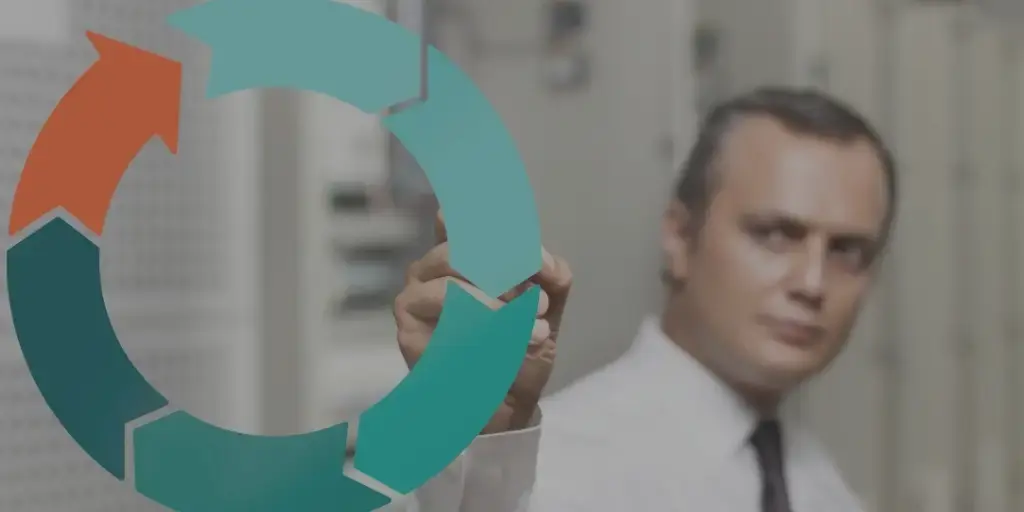
For some it might be a case of back to the future, for others it's a whole new world of possibilities, which I can tell you from personal experience can be a much more rewarding and meaningful experience than the SDR/BDR/AE mash up many find themselves frustrated with.
Full-cycle sales is a true powerhouse when it comes to getting the most bang for your buck. It simplifies operations, reduces costs, and enhances efficiency like nothing else.
Full-cycle sales involves a single salesperson having responsibility for every stage of the sales journey.
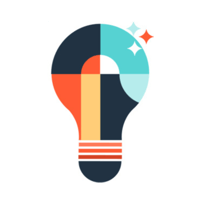 A full-cycle sales person is responsible for managing the entire sales process from prospecting, right through until the deal is successfully closed. Typically they have responsibility for lead generation, discovery, qualification, presentations and demos, proposal and closing deals.
A full-cycle sales person is responsible for managing the entire sales process from prospecting, right through until the deal is successfully closed. Typically they have responsibility for lead generation, discovery, qualification, presentations and demos, proposal and closing deals.
Their territory can be geographical, by industry sector or in larger companies there may be a combination of both.
tune in now
If you're hounded by low customer satisfaction rates, struggling to keep your sales team intact, lacking career growth opportunities for your team, or feeling overwhelmed with limited resources, it's high time to jump on the full-cycle sales bandwagon!
A full-cycle salesperson typically takes on the challenges of prospecting, qualifying and discovery, impressing prospects with presentations and demos, and ultimately negotiating and closing deals. In some cases, they may also have the added responsibility of managing accounts after the sale
It's not just about closing deals; it's about forging meaningful connections with your customers. In this rapidly evolving B2B landscape, where complexity reigns supreme, understanding your customers' needs is the key to providing tailored and effective solutions.
A holistic approach to sales is the essence of full-cycle sales. which holds huge potential for improved customer retention and customer satisfaction, career development and increased sales success.
Transactional relationships belong in the past. Full-cycle sales professionals are the masters of building long-lasting connections. From the first hello to the final farewell, they are there every step of the way, fostering trust, loyalty, and paving the path for repeat business and glowing referrals

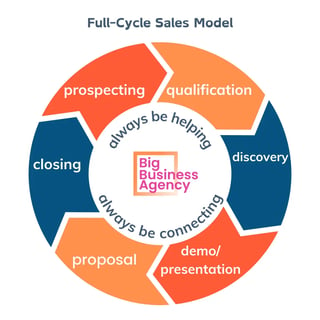 SDRs play a crucial role in the sales process by actively seeking out potential customers through various outbound activities like cold calling, email outreach, and social selling. Their main objective is to identify individuals who have shown interest or have the potential to be a good fit for the product or service being offered..
SDRs play a crucial role in the sales process by actively seeking out potential customers through various outbound activities like cold calling, email outreach, and social selling. Their main objective is to identify individuals who have shown interest or have the potential to be a good fit for the product or service being offered..
Typically, once the SDR has qualified a lead, Account Executives (AEs) move in to take charge. Their main objective is to expertly navigate the sales process, forming strong connections with potential customers.
AEs delve deep into understanding their needs, showcasing product demonstrations, and skilfully negotiating terms to secure a successful sale. They are the masters of their craft, ensuring a seamless and satisfying experience for both buyer and seller.
This model is quite popular in B2B Sales organisations. In contrast a Full-Cycle Sales representative, is responsible for managing the entire sales process from prospecting right through until the deal is successfully closed and in some cases account management post sale.
This is achieve using automation and AI with Sales tools such as Sales Hub - with its dedicated prospecting and sales workspace, all the information your sales reps need is consolidated in one place and enhanced with AI assistants that provide guidance on next steps and priority actions, ensuring nothing falls through the cracks. perfect for the busy full cycle sales folk in your team!

With costs on the rise and returns on the decline, coupled with a less-than-stellar customer experience, it appears that the downsides of this approach may just outweigh the positives!
One of the main concerns for customers who unfortunately find themselves caught up in this experience is the frequently inefficient handover from the SDR to the AE. There are numerous problems in this area, but the most significant ones are;

Every sector of the B2B space is a whirlwind of change with AI demanding attention and promising better productivity and improved performance. Full-cycle sales professionals are the agile navigators of these exciting opportunities.
They effortlessly adapt to shifting market dynamics and evolving customer preferences. By staying involved throughout the entire sales process, they have their finger on the pulse of customer needs, allowing them to adjust their approach with lightning speed.
But that's not the whole story, full-cycle sales professionals are the champions of cross-selling and upselling. Armed with a deep understanding of their customers' current setup and future aspirations, they introduce additional products and upgrades that add value to their clients' businesses.
It's a win-win situation that boosts revenue and strengthens the bond between seller and buyer.
When challenges arise, full cycle sales professionals rise to the occasion. They are the heroes of effective problem resolution. Having been there from the beginning, they possess the knowledge and expertise to address and resolve issues swiftly.

This proactive approach not only enhances customer satisfaction but also showcases a commitment to their success. In the age of big data, full cycle sales professionals harness the power of analytics. They have a treasure trove of data accumulated throughout the sales process, providing invaluable insights into customer behaviour, preferences, and the effectiveness of different sales strategies. Armed with this knowledge, they continuously refine and optimise their techniques, ensuring they stay one step ahead of the game.
Personalisation is key, and full-cycle sales professionals are the masters of creating unforgettable customer experiences. By understanding the customer's journey from start to finish, they tailor their interactions and communications to align perfectly with their preferences and expectations. This personalised touch leaves customers feeling valued, satisfied, and loyal.
In the dynamic landscape of the technology sector, the full-cycle sales strategy remains a force to be reckoned with. It's the secret sauce that fosters deep customer relationships, adapts to industry changes, and seizes upselling opportunities.
With businesses facing the challenge of accomplishing more with limited resources, managers are routinely seeking to reduce costs and optimise their operations. Consequently, sales tools are being closely examined as managers actively seek ways to simplify their tech stack, like trying to unravel a jumble of yarn. This trend is here to stay for the foreseeable future.
With B2B Strategies like multi-channel outreach and multi-threading in your sales campaigns it's important to use automation and AI to be able to scale your activities and manage larger numbers of tasks in your sales sequence and sales cadences. The best way to approach full cycle sales is to simplify your tools and stop the swivel chair integration and reliance on spreadsheets.
Select a single solution that meets the needs of your sales team from prospecting to closing, a sales automation tool that can grow with you business, giving your whole team (sales, marketing and support) access to all communication with your prospects and customers. A single source of truth, elevating your customer experience and your sales results.
Read more about Sales Automation and AI tools for B2B Sales teams
The full cycle sales process is a comprehensive approach that spans every stage of the sales journey, from initial prospecting to closing the deal and beyond.
It begins with identifying potential leads and understanding their needs, followed by engaging them through personalised communication and building a relationship.
As the process progresses, the focus shifts to presenting tailored solutions that address the client's specific challenges, negotiating terms and ultimately securing a commitment.
Post-sale, the cycle continues with nurturing the client relationship, ensuring satisfaction, and seeking opportunities for upselling or referrals.
This holistic method not only aims to close sales but also to foster long-term partnerships, driving sustained business growth.
Beyond the advantages of adopting full-cycle sales, organisations can elevate their success by aligning sales activities with buyer needs, resulting in more accurate forecasts, shorter sales cycles and better visibility into pipelines and opportunities.
For a more in-depth review of the full-cycle sales process, visit our blog article linked here.

A full-cycle sales person does not simply close deals, they play a vital role in the entire sales process, encompassing various stages from prospecting to closing the deal. They are responsible for identifying potential leads, qualifying them through thorough discovery and evaluation, delivering engaging presentations or demos to showcase the value of products or services, and skilfully negotiating terms to secure a successful sale.
Moreover, some roles may extend to post-sale account management to ensure customer satisfaction and retention.
In B2B sales today, industries often require sales campaigns that leverage multi-channels activities such as emails, phone calls, and social media outreach. A deep understanding of social selling techniques is increasingly becoming essential for full-cycle sales professionals to effectively engage with prospects and nurture relationships online. With the ever-evolving digital landscape, staying abreast of the latest trends and technologies in sales is crucial for success in this role.
If you have questions about Full Cycle Sales and whether it's right for your business, arrange a chat with one of our team today.
The key stages of the full cycle sales process include:
1. Lead Generation: Identifying potential customers through various methods such as networking, referrals, and marketing campaigns.
2. Lead Qualification: Assessing the potential of leads to determine if they are a good fit for the product or service.
3. Presentation: Demonstrating the value of the product or service to the qualified leads.
4. Handling Objections: Addressing any concerns or questions the prospect may have.
5. Closing the Deal: Finalsing the sale and ensuring all terms are agreed upon.
6. Post-Sale Follow-Up: Maintaining a relationship with the customer to ensure satisfaction and encourage repeat business.
Self-sourcing leads refers to the process of independently identifying and generating potential customers or clients for your business.
This involves using various strategies and tools to find and engage with prospects without relying on third-party services or purchased lists.
Self-sourcing leads is crucial because it allows businesses to have more control over their lead generation process.
It ensures that the leads are highly relevant and tailored to the specific needs of the business. Additionally, it can be more cost-effective and sustainable in the long run compared to buying leads.
Effective methods for self-sourcing leads include networking, leveraging social media platforms, attending industry events, utilising content marketing, and optimising your website for search engines.
Building relationships through referrals and partnerships can also be a powerful way to generate high-quality leads.
Social media can be a goldmine for self-sourcing leads. By actively engaging with your target audience, sharing valuable content, and participating in relevant groups and discussions, you can attract potential leads.
Platforms like LinkedIn and X, formerly Twitter, offer advanced search features and advertising options to help you reach and connect with prospects.
Content marketing plays a significant role in self-sourcing leads by attracting and nurturing potential customers through valuable and relevant content.
By creating blog posts, videos, eBooks, and other forms of content that address the pain points and interests of your target audience, you can establish your authority and build trust, ultimately driving more leads to your business.
![]()
Thinking about including self sourcing into your sales process? Maybe full cycle sales could be a good fit for you.
To find out more, get in touch for a no fuss, no obligation chat.
If you're at capacity servicing the customers you already have, we can help with a combination of process improvements and technology. The result? Your business will be transformed!
Related
McKinsey's 7S Model to Implement Full Cycle Sales
What is full cycle sales experience?
Why not join us at SpokeSpeak? - a Sales and HubSpot focussed community that's open to HubSpot enthusiasts, experts and newbies as well as those of you that are simply Hub-curious 🤔
Check out the next episode at SpokeSpeak.com
 Further Reading
Further Reading
How to improve your sales win rates
Align your sales process with the buyer's journey
Why Use Multi Threading in B2B Sales?
Sales Playbook: Winning Big Deals
Big Business Agency Sales Library
Reduce Helpdesk Ticket Response Times
Transform your business with cutting edge eCommerce Solutions
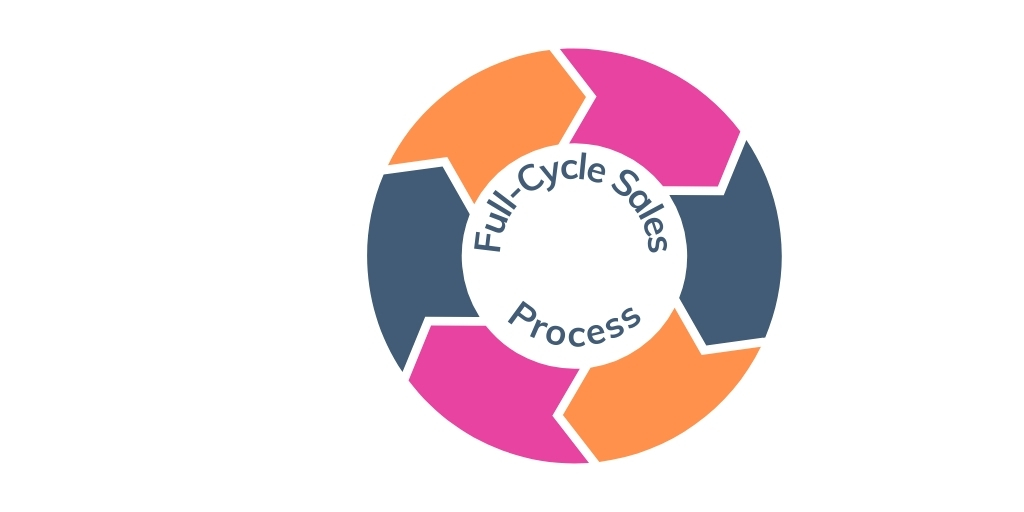
1 min read
The traditional sales model is broken - and expensive. With up to 40% higher costs and longer deal cycles, many sales leaders are ditching the...
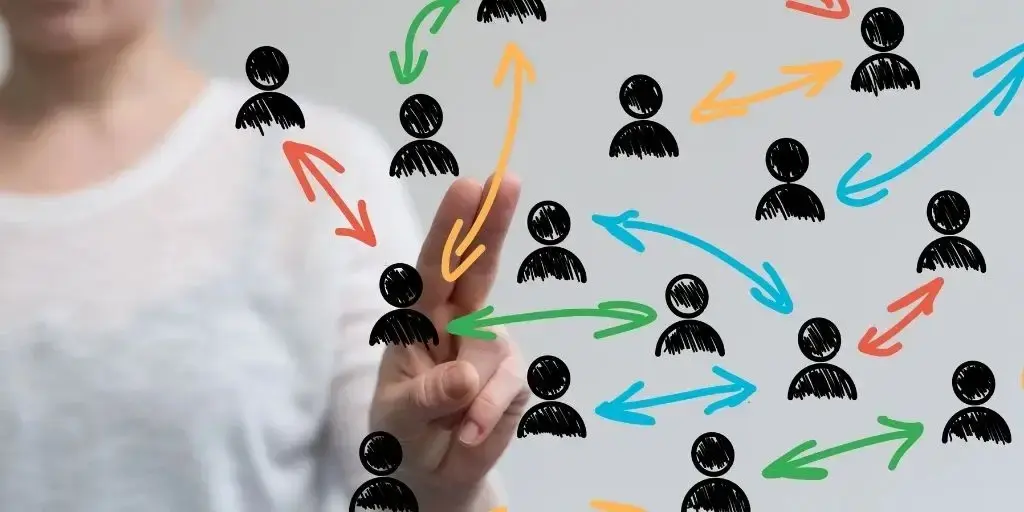
4 min read
Full-cycle sales model: Why it's so much better for customers